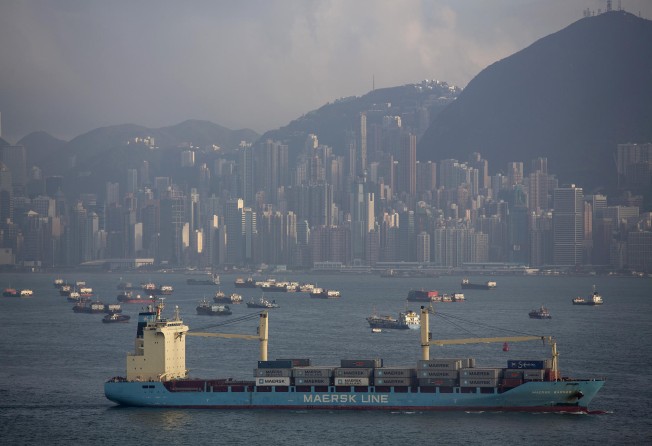Shipping lines weigh costs of greener Hong Kong port
Proposed law will make Hong Kong first in Asia to control ship emissions

A proposed law which makes Hong Kong the first jurisdiction in Asia to control ship emissions in its ports has raised concerns on who should bear the costs for an environmentally clean port.
A government bill which would require all ocean-going vessels to switch to clean fuel with a maximum 0.5 per cent sulphur content while docked in Hong Kong is being tabled at the Legislative Council today. Violations would mean a fine of HK$200,000 and six months imprisonment.
The Environment Bureau is aiming for the law to take effect on July 1. Frankie Yick Chi-ming, a legislator for the transport constituency, backs the bill and expects it to be passed. "This has been discussed for some time and I haven't seen anybody stand up to object to it," he said.
Several international shipping lines told the South China Morning Post that they were studying ways to minimise the hit. Levying a surcharge on their customers remains the most viable option.
"With the majority of the industry awash in red ink in recent years, it is beyond our financial capability to bear the entire cost for clean air. We may implement surcharges similar to what we are doing in North America and Europe [emission control areas]," said a local manager for a European shipping line, who asked not to be named.
An emission control area is a designated place that must comply with emission caps set by the International Maritime Organisation. There are three such areas in the world in North America, the Baltic Sea and the North Sea. Shipping lines have slapped US$30 to US$90 per standard container on shippers for the extra costs.
The bill exempts ships plying river routes, and warships. In 2011, 19 shipping firms came together to volunteer for the switch to low-sulphur fuel, bearing the entire extra bunker costs which reach an average of US$2 million a year themselves. The endeavour did not receive cash subsidies from the city's government until almost three years later, which carriers say offset less than 50 per cent of the extra costs.
"It will add additional costs for all shipping lines calling on Hong Kong port. The ideal scenario is of course we implement the same measures at the same time," Yick said, warning of losses in shipping traffic to neighbouring ports. Low-sulphur fuel is US$200 to US$300 more expensive per tonne than marine bunker which contains 3 to 3.5 per cent sulphur. Bunker costs account for 20 to 30 per cent of a carrier's total operational costs.
The Shenzhen government put forward a scheme last September to encourage carriers to switch to clean fuel, vowing to cover up to 100 per cent of the extra costs. But no action has been taken on the plan.
Undersecretary for the Environment Christine Loh Kung-wai said the Environment Bureau will further exchange experiences of enforcing the mandatory fuel switch scheme. "Setting up a Pearl River Delta [emission control area] remains our ultimate goal and we are working towards it," Loh said.